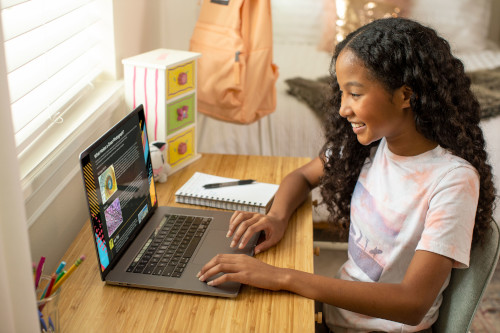
My experience with online education began 19 years ago after I took a break from teaching in the brick and mortar setting to give birth to my daughter. When I was ready to get back in the game, several of my colleagues recommended Florida Virtual School (FLVS), which at the time was in its infancy. What really sold me on FLVS was the organization’s dedication to meeting students where they are. It also seemed like the next natural step for me, because during my traditional schooling days I was constantly looking to add innovative methods and technology to my classroom.
Within a couple of months of teaching online with FLVS, I witnessed how intentional the instructors were when serving our students’ individual needs, and I knew this was the place for me. I remember being in awe of the relationships teachers were able to form not only with their students, but also parents and other stakeholders.
With that in mind, there were several skills I needed to learn, especially when it came to establishing rapport with students. There are many skills that teachers need to be successful teaching online, including basic technology skills like how to use a computer, run a webinar or video conferencing platform, and use a variety of systems. But the most important skill is communication. Specifically, how to actively listen, build relationships, and at many times, be a shoulder to cry on and a mirror to see in. Being an online teacher can be tough, because you are juggling a lot at one time, but the focus should always remain on the student and what they need.
According to the Pew Research Center, 61 percent of teens suffer from increased anxiety due to pressure to get good grades. Much of this anxiety can come from the fear of failing or saying something wrong, and feeling embarrassed or judged. Being in the online setting can help with much of this anxiety already, especially with one-on-one meetings and lessons with students, but there are several other ways to help them feel comfortable so that they share their thoughts with you.
1. Show that you make mistakes too.
Mistakes happen all the time and the world keeps spinning, right? Showing that everyone makes mistakes opens dialogue and encourages students to not be afraid to make errors. I’ve made many mistakes while teaching.

